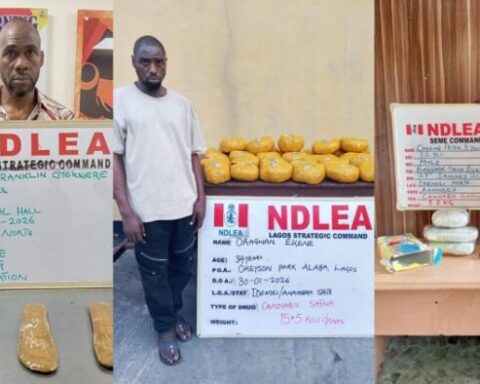Vice President Kashim Shettima has officially launched the Presidential Food Systems Coordination Unit (PFSCU), a new initiative aimed at addressing Nigeria’s intensifying food security crisis. With food prices soaring and economic challenges mounting, the PFSCU is intended to provide urgent solutions to hunger and support the establishment of a more resilient agricultural system.
In his address during the PFSCU’s inauguration, Shettima highlighted the severity of Nigeria’s food insecurity, which has been exacerbated by climate change, conflict, and economic instability.
“The nation is facing a rare food security crisis, and the sooner we come to terms with the reality, the better,” Shettima stated, underscoring the administration’s resolve to tackle the issue head-on. With many families struggling to afford basic food supplies, the PFSCU’s objectives include boosting agricultural productivity, fostering collaboration, and modernizing the country’s food systems.
The PFSCU is designed to foster cooperation between state leaders, federal ministries, and development partners to enhance food security across Nigeria. Shettima emphasized that the PFSCU would complement, not replace, the Ministry of Agriculture, by creating a coordinated response to address Nigeria’s immediate food needs.
The PFSCU’s objectives include:
Boosting Agricultural Productivity: Through initiatives to enhance farming techniques and increase crop yields, the PFSCU aims to bring Nigeria closer to food self-sufficiency.
Fostering Multi-Sector Collaboration: By partnering with state governments, private organizations, and international allies, the PFSCU intends to mobilize resources and expertise to tackle the country’s food insecurity.
Implementing Key Programs: The PFSCU will support initiatives such as the Green Imperative Programme, a project designed to modernize Nigeria’s agriculture with private sector involvement.
Strategic Initiatives for Strengthening Food Systems
In outlining PFSCU’s strategic direction, Shettima highlighted several priority areas to strengthen Nigeria’s food systems:
1. Modernizing Agriculture: State governors are committing to advancing farming techniques, including the use of improved seeds and fertilizers, to increase productivity across Nigeria’s regions.
2. Promoting Commercial Agriculture: Investment in commercial farming is expected to significantly bolster Nigeria’s food production capacity, reducing dependence on imports and stabilizing local food prices.
3. Enhancing Farmer Security: To support farmers who face safety risks, the PFSCU aims to implement protections that encourage participation in agricultural activities by ensuring a safer working environment.
State-Level Commitment and International Support
The PFSCU has received strong support from state governments and development partners. Governor Bassey Otu of Cross River State emphasized that agricultural modernization is essential for boosting food production, while Governor Babagana Zulum of Borno State stressed the importance of coordinated strategies to address productivity issues amid a growing population.
Internationally, the PFSCU has garnered the backing of organizations that are eager to support Nigeria in its fight against food insecurity. Dominique Koffy Kouacou, the Country Representative of the Food and Agriculture Organization (FAO), reaffirmed FAO’s commitment to Nigeria’s food security goals, noting that both President Bola Tinubu and Vice President Shettima have rekindled international interest in Nigeria’s agricultural sector.
A Path Toward Food Security
Through the PFSCU, Nigeria is setting a course to address the root causes of food insecurity, including climate impacts, conflict, and economic pressures. By fostering collaboration, advancing agricultural practices, and protecting farmers, the PFSCU is a critical step toward achieving a more secure food future for Nigeria.



























